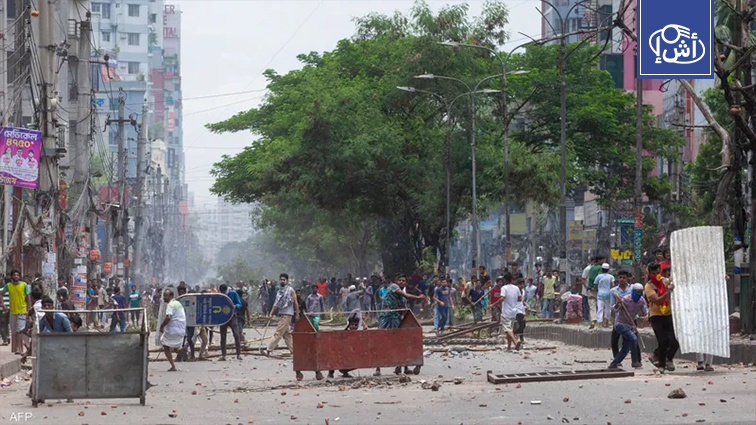Police in the Bangladeshi capital, Dhaka, used live ammunition to confront escalating demonstrations that have been sweeping the city for several days, in light of continuing tensions related to the quota system in government jobs.
The protests that began several weeks ago were recently exacerbated by confrontations between demonstrators and security forces, especially on the Dhaka University campus, after security intervention led to the injury of one of the demonstrators.
In a related context, the Narsingdi area witnessed dramatic events after demonstrators stormed a prison and released hundreds of prisoners.
Battles between demonstrators and police resulted in the deaths of more than 100 people, while about 300 police officers were injured.
The demonstrators oppose the existing system that allocates up to 30% of government jobs to the children and relatives of veterans from the 1971 War of Independence, which they see as discrimination that serves the interests of supporters of Prime Minister Sheikh Hasina.
Sheikh Hasina assumed power for the fourth time in a row after winning the elections last January and faced severe criticism due to the lack of real opposition.
The government suspended the quota system in 2017 following student protests, but the system returned to implementing it last month after a Supreme Court decision that supported the demands of relatives of fighters.
It is noteworthy that the quota system in Bangladesh aims to allocate a certain percentage of government jobs to individuals from specific groups and based on certain criteria such as belonging to social groups or family relationships with veterans.
Reports showed that some individuals exploited this system in illegal ways, such as leaking national exam questions to achieve good results and benefit from these quotas, which intensified popular anger towards the system.
Study reveals that half of Bangladeshi migrants to Libya pass through Turkey
